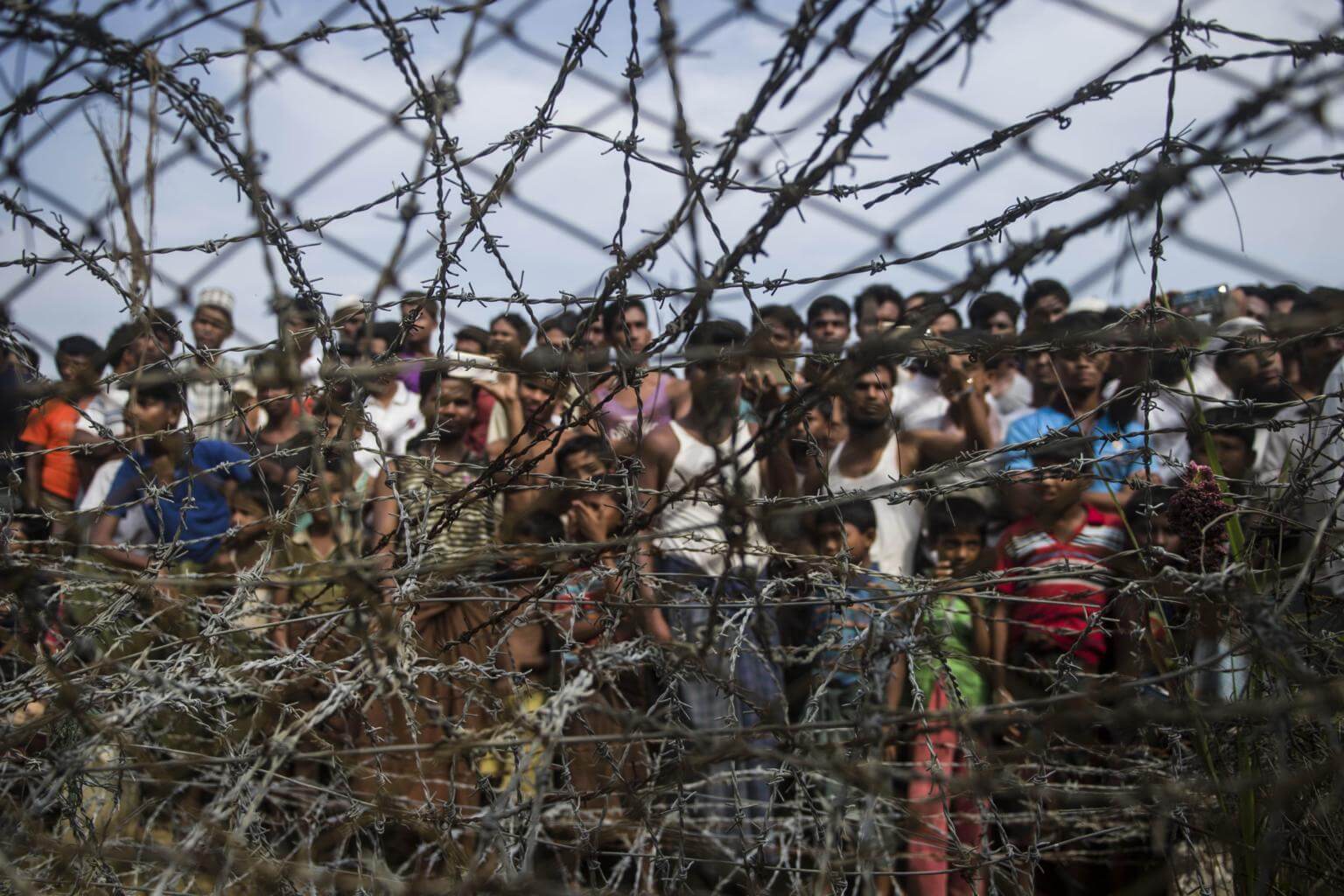Myanmar national security adviser says terrorism at the root of conflict in Rakhine state
Sign up now: Get ST's newsletters delivered to your inbox

Nearly 700,000 people from the Rohingya Muslim minority have fled Myanmar's Rakhine state since the military-led crackdown in August 2017.
PHOTO: AFP
Follow topic:
SINGAPORE - Myanmar national security adviser Thaung Tun has called on the international community to view the humanitarian crisis in the Rakhine state "more objectively", saying that naming and shaming would only inflame inter-communal violence.
"Myanmar does not deny that what is unfolding in northern Rakhine is a humanitarian crisis, but it is a crisis that affects more than one community," said Mr Thaung Tun.
He said that, for instance, the premeditated and brutal killings of village heads and civilians by the Arakan Rohingya Salvation Army (Arsa) militant group - detailed by Amnesty International in a report last week - caused ethnic groups to flee the area.
"The situation was exacerbated as a result of an unscrupulous propaganda campaign of Arsa. There is no question that the Muslim minority in the Rakhine has suffered. But Buddhists have suffered too," he said.
He added: "Unhelpful pressures are inflaming the discourse and detracting from the central pursuit of peace. A prejudiced propaganda campaign on the plight of the refugees is being used by terrorists to achieve their aims."
Nearly 700,000 people from the Rohingya Muslim minority have fled Rakhine state since the military-led crackdown which followed the Rohingya militant attacks on security outposts in August last year.
But many critics of the Myanmar military crackdown, say the militant attacks were on a small scale and were used as a "pretext to launch a campaign of ethnic cleansing on a staggering scale with intense brutality".
The critics include British journalist, Mr Richard Lloyd Parry from the The Times, who was among those in the audience on Saturday skeptical about Mr Thaung Tun's comments.
Mr Parry said that the tales of arson, rape and murder of overwhelmingly Rohingya civilians, leading to their flight into Bangladesh, had been corroborated and published by international media and United Nations organisations.
Asked if these groups could all be simultaneously lying, Mr Thaung Tun said that the Myanmar government would also like to find out the truth.
"Why would so many people find it necessary to abandon their hearths and homes? Due to fear, but fear can be from different sides.
"The fear was sowed in the hearts and minds for several years. Terrorist cells operating in each and every Muslim village in northern Rakhine made sure that everyone who disagrees with them had their throats slit," he said.
He added that these terrorist cells were behind the insurgent attacks on August 25, and came hours after the Kofi Annan Commission released its report. Headed by the former UN secretary-general, the international advisory commission put forward 88 recommendations on resolving the crisis, after a year of consultations on the ground.
The terrorists wanted to derail efforts to find a solution to the inter-communal conflict, he said.
He also highlighted Myanmar's recent decision to set up an independent commission to address issues of development, peace and stability, which will also look into allegations of human rights violations.
"We believe you ought to lend your ear to different narratives and then come to a decision," Mr Thaung Tun said, adding that if the allegations were true, the perpetrators would be investigated according to the law and action would be taken against them.
Mr Thaung Tun also said that Myanmar would cooperate fully with Bangladesh to ensure the expeditious return of displaced people, and that there was no cap on how many could return home.
But his fellow panellist, International Red Cross president Peter Maurer, warned that the vast majority of displaced people were not yet ready to return.
There needed to be freedom of movement, access to basic services, access to markets in Rakhine and trust in security arrangements for those who returned, he said.
"We are still far away from such arrangements today on a large scale," added Mr Maurer.
Asked to decide between the official narrative on the conflict given by the Myanmar government, or the human rights abuses by the military, Mr Maurer declined to throw his weight behind either.
He said: "It's not our task to decide between one or the other narrative...we are of the opinion that violations have been committed by all sides in the conflict."
Outgoing Thai ambassador to Vietnam, Manopchai Vongphakdi, said: "We believe the root cause of the problem is related to the socioeonomic conditions of the Rakhine state. The distribution of equitable and inclusive growth should be addressed urgently."
European Union Deputy Secretary General for Political Affairs Jean-Christophe Belliard added that leaving the crisis to fester could foment terrorism.
He said: "At a time when Daesh (the Islamic State of Iraq and Syria) is looking for new ground, the situation now in the (refugee) camps in Bangladesh could be a very fertile ground for the possible growth of terrorism in this part of the world."

